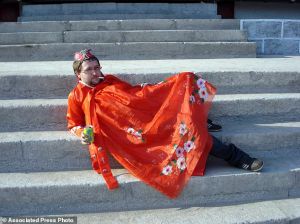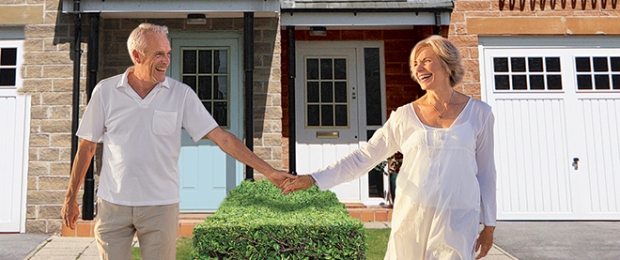A selection of this week’s Korea-related news and commentary
Nuke-free Korea?
Korea’s oldest nuclear power plant, the Kori 1 reactor located in the suburbs of Busan, was permanently shut down last Sunday after 40 years in operation. Commissioned in 1978, the reactor’s initial 30-year life span was extended by ten years in 2008.
Since then, the public mood in Korea has somewhat soured on nuclear power. In March 2011, many Koreans were alarmed by the meltdown at the Fukushima nuclear power

The ruined Fukushima nuclear plant
plant in Japan, which prompted many calls for a review of Korea’s energy policies. And in 2012, the Korean public (and this Busan resident) were again rattled by the revelation that the Gori 1 reactor and others had been supplied with substandard parts backed by forged safety certificates, a major scandal that resulted in several jail sentences.
President Moon Jae-in has vowed to wean the country off nuclear energy, which currently accounts for 22% of South Korea’s power generation, and to move toward renewables and natural gas. Critics of the plan have claimed that Moon’s move may hurt construction companies who have benefited from technology exports in recent decades. In addition to the example of Fukushima and the 2012 scandals, Moon and other proponents point to the potentially catastrophic combination of Korea’s population density, susceptibility to earthquakes, and a long-standing emphasis on cost and efficiency at the expense of public safety as justification for the push to go nuclear-free.
[Mis]adventure Tourism
Otto Warmbier, a 22-year old former student at the University of Virginia, died on Monday after being released from detention in North Korea, where he had been imprisoned since January 2016 for stealing a poster from a Pyongyang hotel. In response, Young Pioneer Tours (YPT), the company that brought Warmbier to North Korea, has announced that it will no longer accept American passport holders for its North Korea tours, while other tour groups that specialize in North Korea trips are expected to follow suit.
According to their website, YPT specializes in “ destinations that your mother would rather you stayed away from”, including Iraqi Kurdistan, Somaliland, and the site of the Chernobyl disaster. Regarding North Korea, the YPT website claims that it is “probably one of the safest places on Earth to visit provided you follow the laws as provided by our documentation and pre-tour briefings,” though it adds that if you do manage to break the law (even an absurdly minor one like stealing a poster), the consequences can be “severe”, or in other words, you’re totally screwed.
YPT also has a reputation for creating tours with a booze-fueled party atmosphere, and

YPT founder Gareth Johnson on a 2009 visit to Pyongyang.
for being somewhat lax in the organization of its tours. If you find yourself questioning the wisdom of a business model that encourages excessive alcohol consumption in a country where breaking the most minor law gets you shipped to a gulag for fifteen years, you’re not alone.
Love and Marriage: An Institute You Can Apparently Disparage
Over the past few years, anecdotal evidence has suggested to me that young Koreans are less willing to get married, or to delay marriage to their 30’s. The hard evidence for this trend is provided by Statistics Korea, who report that Korea’s marriage rate has dropped steeply since 1996, and last year recorded the lowest rate since 1970.
Against this backdrop, I was not quite sure what to make of this recent Korea Herald article, which reports that single-person households are now the most common living arrangement (27.8%) in Korea, while also noting that a majority of the people living alone (59.1%) are married.
It’s long been noted that many couples around the world, like this one in England, have found many benefits to sleeping in separate beds or even separate bedrooms. Are Korean couples taking this marriage-saving trend to the next level by maintaining separate pads, or is it a dark omen that portends a further weakening of the already battered institution? Stay tuned.

Still from the sitcom I Love Lucy. Though Lucy and Ricky’s separate beds were a product of prudish television moral guidelines, today’s viewers may more often see such sleeping arrangements as a crucial component of marital bliss.

Young Koreans are probably better served by delaying as far as possible. Not only can they reap the rewards of living at home, but they can save a ton. That is if they managed to land a job; an increasingly difficult thing to do.
I can’t with warmbier especially since he was taken into custody, tried and sentenced when so many Americans are simply riddled with bullets within seconds of encountering police. Ironic that those same folks outraged by this say nary a peep about the other instances of injustice.
Nuclear energy is some scary stuff to work with and I understand why Fukushima has woken people up to it’s possible consequences. Interesting to see how it will progress.
And even though the Korean media is stuffed with fluffy romantic shows, it seems to me many people look at mariage as a business arrangement. Such an arrangement is becoming viewed as less beneficial in many ways for people, so it makes sense culturally that they may put it off.
The marriage trend in Korea isn’t all that surprising to me, nor is the fact that people are living separately. A Korean friend of mine (who’s married AND living with her spouse) 😉 recently told me about the Korean trend of “marriage graduation,” where you stay married on paper but live separate lives, in separate apartments. I am guessing that this is mostly powered by the female half of the relationship because in typical Korean relationships the wife does ALL the housework, meal prep etc…quite possibly works full-time as well these days, and doesn’t get much affection or love from hubby. These old Confucian ideas really need to be booted out of the country, especially in terms of gender relations and roles.
The nuke-free Korea and the permanent closure of the power plant is a very welcome move especially early Spring when air quality was very bad here in Seoul. it was so hard for children especially who need to be out there and be active. and the pregnant women and the senior citizens. well, it’s bad for everybody so the new president’s move was really good.
Couple living in separate beds? that’s too radical for me:-)
Once again, very interesting piece here.
I do think Korea (and other countries) should aim to reduce the use of nuclear power.
As for YPT, that does seem a bit off about encouraging drinking but also stating that their tours our extremely safe. Questionable at best. An unfortunate outcome for that American and his family.
I knew the marriage rate was low, but I didn’t realize how low…quite interesting phenomenon taking place around the world, especially over in Asia.
I like what you do with your articles, distilling news pertinent to SoKo, kudos! I for one didn’t know about the nuclear plant shutting down in Busan, thank you for informing me.
The incident with the student visiting NoKo and ending with his death is very very spooky. Can’t say I have much desire to visit the country anytime soon tbh.
And lastly, Korea’s future is so interesting to me because the influence of westernization is so strong, from their economy to social constructs like marriage. I’m fascinated to see where this country will be in 10-15 years in terms of their ideology. It seems they are embracing Western ideas over Confucianism.
I too am very interested to watch this process of cultural/social evolution unfold. Korea has already changed a lot in the past decades, and there’s no reason to think it won’t continue to transform.
The Nuke free trend is too much based on irrational fear, in my opinion. Switching too natural gas will add to global warming, which is a much bigger threat than nuclear will ever pose. I wish they would embrace solar more, since Korea receives so many sunny days in a year.
I wouldn’t set foot in Korea and the Warmbier case only deters me more. The money you spend there will be used directly to keep the regime in power and I want none of that. The argument that you can change something by tourism is a myth, the only people who can change anything at all are North Koreans themselves.
Interesting news selections. I’m glad that you present your blog in this format, and have not seen anyone else do anything like this thus far. Your story selections are carefully picked, and I enjoyed reading about all three topics you focused on here. Nice job.
I agree with Emre, I probably spend my money elsewhere and seeing handpicked and altered North Korean places would be nerve wrecking than enjoyable. The message is clear – follow the rules. No other place appreciates it’s tourists take advantage of the situation and steal shit. Just be cool and don’t give you family a hard attack over some poster.
Thanks for the updates! I enjoy reading your blog. It makes me feel that I’m still in Korea. I followed the story of Otto Warmbier from the beginning. It’s sad that YPT will no longer accept American passport holders for its North Korea tours just because of one person’s mistake.
Thanks Karla.
The new YPT policy doesn’t really change my travel plans; I intend to continue NOT visiting North Korea until they stop killing the occasional tourist who steps slightly out of line.